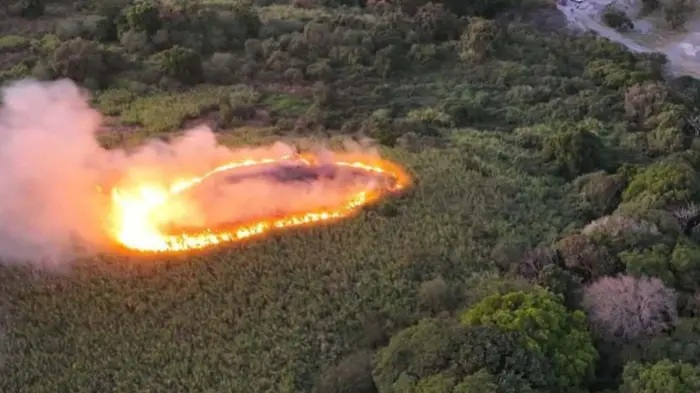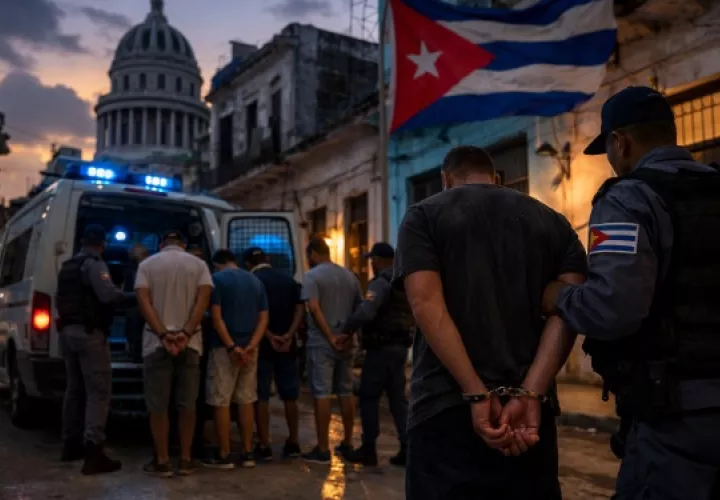Panama’s worst justice crisis unfolds

The widening scandal around individuals in Panama’s justice system is causing concern among citizens’ groups and those concerned with the international image of the country.

Under the lead headline “Justice facing the greatest crisis in its history” La Prensa carried the following report on Saturday. April 16:
Recent allegations of influence peddling, corruption of officials, manipulation of justice, interference of the Executive Branch in the judiciary, and the involvement of a judge in secret meetings in the Presidency, have created "the worst crisis in history administration of justice in Panama, according to the Citizens Alliance for Justice, a network that brings together a dozen civic and professional organizations.
The Alliance called for investigation of in three events: the wiretapping staff of the Office of Administration, on the orders of its boss Oscar Ceville, the infiltration of drug traffickers into the Public Ministry (MP) and the participation of Judge Jose Abel Almengor in a conspiracy to remove from office the Attorney General, Ana Matilde Gómez.
The first two complaints, from August to December 2010, are the responsibility of the Attorney General. The infiltration of drug trafficking happened during the management of Giuseppe Bonissi. Meanwhile, participation of Almengor against Gomez should be investigated by the Assembly, but after his resignation on Thursday April 14), they should be sent to the MP.
The Alliance also urges the Executive to agree to a mechanism for the selection of judges and prosecutors, with the participation of organized civil society.
Six years ago, as president of Democratic Change, the now president, Ricardo Martinelli, wrote a letter to the State Commission for Justice, recommending a "special rules" for the judges "are chosen directly by civil society without any involvement of the Executive Branch. "
Inside La Prensa carried a detailed history of events leading to the present crisis
On February 5, 2010, lawyer Giuseppe Bonissi stomped into the headquarters of the Attorney General's Office He had been appointed by the Executive, and ratified by the National Assembly first as a deputy prosecutor and then as attorney general in charge, upon the suspension of Ana Matilde Gomez.
The thesis of ex judge Zulay Rodríguez- published by La Estrella de Panama on March 21, is that the departure of Gomez, head of the Public Ministry, and the subsequent arrival of Bonissi to the institution, was planned by a group calling itself “People Persecuted by Ana Matilde Gomez” (Pamago), led by Italo Antinori.
The story included the ex judge Rodríguez, José Abel Almengor, several trial lawyers, among them Roniel Ortiz the defender of Colombian David Murcia Guzmán, and former Secretary of State communications Alfredo Prieto, whose office was in the Palace of the Herons" where some of the conspiratorial meetings were held said the ex-judge
Conspiracy or not, Gomez was removed from office and replaced by Bonissi, immediately causing a stampede of prosecutors who argued that the departure of Attorney had been a "breakdown in the constitutional order."
In this scenario, the prosecutor William Parodi in the 14th district ,was commissioned to examine the case of Murcia Guzmán for the illegal taking of funds, and was transferred to the Drug Prosecutor II, by order of Bonissi. It was a promotion that involved a monthly salary increase from 3000 to 6000 dollars, including expenses.
With the rise, Parodi was empowered to examine other proceeding against Murcia Guzmán and his former financial advisor Ernesto Chong.
In this case, the investigation was for alleged money laundering. However, judicial sources say, in the record lay documents already examined by Parodi when investigating Murcia Guzmán and Chong for illegal collection of funds.
"This rise of [Parodi] surprised me because his training and experience [institutional career] was not operating as a prosecutor. He was more in the financial area," said his former boss and Attorney General Ana Matilde Gómez.
Bonissi defended the rise saying Parodi was sent to the Second Drug division for hisexperience.
"He was supposed to create the third prosecution in drugs to deal with financial cases related to money laundering. Everything was a project, but I never got the extraordinary budget I asked for "claimed Bonissi.
Parodi continued the investigation of money laundering against Murcia Guzmán and Chong, after the then-Drug Prosecutor Almengor, was challenged by Roniel Ortiz for alleged irregularities in the handling of the case.
The challenge coincided with an event that made headlines on March 26, 2009: Chong, under house arrest, took a plane to America, with no one to stop him.
How was this possible? After the investigations ordered by the then Attorney General Gomez, it was determined that Almengor had not sentthe National Immigration Service (SNM alerts that would have prevented Chong’s trip.
In his defense, Almengor calimed "communication problems", which led to the opening of a disciplinary process against him. His resignation on May 18 2009, resulted in the closure of proceedings against him.
A few months later, he appeared as security advisor in the Presidency of the Republic. And from there to the Supreme Court, a decision made by the president, Ricardo Martinelli, with widespread opposition against the appointment because of the problems of independence that would come from the new judge appointed by the Executive.
Two months after arriving in the Second Drug Division, Prosecutor, Parodi asked for a temporary stay for Murcia Guzmán and Chong, arguing that there was "insufficient evidence" to link them with money laundering. The provisional dismissal became final in September 2010 when the Criminal Court, under Hermes Quintero, acquitted the two.
Just one month after the case was closed, Parodi was sent to the Office of Civil Affairs, where he defends the interests of the state.
Why did Parodi serve as anti-drug prosecutor for only two months?
According to Bonissi, Jose Ayu Prado (then Organized Crime prosecutor) and Javier Caraballo (Drug Prosecutor) advised him to "make some adjustments" and named as another prosecutor to the Second Drugs division.
"Since I had to name someone in the Office of Civil Affairs, I asked asked Parodi who said said, “no problem” … I always consulted with them Ayu Prado and Caraballo.
However, in remarks to La Prensa, both officials denied recommending Parodi
The Guzman saga
Murcia Guzmán was indicted for allegedly receiving funds from Colombian drug trafficker Juan Carlos Abadia alias Chupeta, for his operations to capture money from pyramid schemes, using the Panamanian banking system.
While his case was closed in Panama after the dismissal order by Parodi, In the U.S. Murcia pleaded guilty to conspiracy to launder money but not from drug trafficking
In an interview published in La Prensa on February 16, 2009, from Picota prison in Colombia, Murcia said that Almengor and Parodi "favored some of the people connected to h iscompanies." And he cited Chong, who was responsible for conducting their business transactions.
Att the time spoke Zulay Rodriguez, also referred to favors by the persons mentioned by Murcia Guzmán.
"[Parodi] is a close friend of Jose Abel Almengor, and Parodi did him very big favor Parodi him when he wasa prosecutor in the Fourteenth," said the former judge told La Prensa without specifying details.
The statement coincides with the complaint made at the time by the former presidential candidate of the Democratic Revolutionary Party (PRD), Balbina Herrera, claiming that Almengor withheld information that would confirm the $ 800,000 donation made by Murcia Guzmán's to the election campaign of today’s president. Ricardo Martinelli.
That suspicion was even contained in a cable prepared by the U.S. former ambassador Barbara Stephenson, and filtered by WikiLeaks.
Herrera reiterated the accusation and recently told La Prensa the donation was made as a "loan" managed by Chong and received by his legal advisor, the current Minister of Labor, Alma Cortez.
Speaking La Prensa on Friday Cortes would not discuss the case, claiming that he had been investigated by the justice department, and exonerated."
La Prensa was told that Chong, who faces illegal processing of fundscharges and is facing a hearing next next month, is subject to "routine monitoring" by the National Immigration Service.
Why is Chong under immigration watch , if there is not currently any action that prevents him from leaving the country?
La Prensa was unable to get an explanation from the Director of Immigration María Cristina González.





